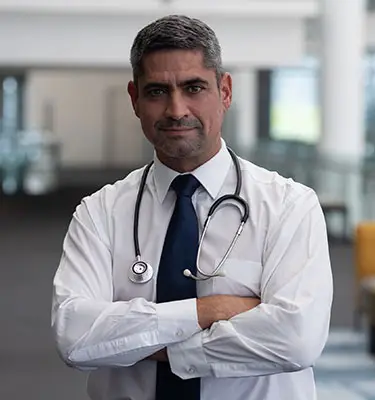
Expert testimony must comply with applicable state statutes governing medical expert witness testimony
In July 2021, the Court of Appeals of Georgia, in Stephanie Orr et al. v. SSC Atlanta Operating Company d/b/a Northeast Atlanta Health and Rehabilitation Center, affirmed the trial courts disqualification of the Appellant’s expert witnesses, holding that the experts did not meet the requirements as specified under Rule 702 of the Official Code of Georgia (OCGA). Similarly, in September 2021, the Supreme Court of Ohio, in Johnson v. Abdullah, Slip Opinion No. 2021-Ohio-3304, held that the Appellant failed to establish that his medical expert complied with the active-clinical-practice requirement of Ohio’s Evidence Rule 601.
Qualified medical experts are essential in winning medical malpractice cases. However, as recent case law demonstrates, quality is not enough. Medical expert witnesses must comply with a state’s expert witness statutes and regulations. Cambridge Medical Experts will not only connect you to top-level medical experts from Ivy League institutions but will ensure adherence to a state’s medical expert witness requirements. Our experts have never been disqualified for failure to comply with a state’s expert witness rules.
Stephanie Orr et al. v. SSC Atlanta Operating Company d/b/a Northeast Atlanta Health and Rehabilitation Center
Appellant Orr appealed the trial court’s disqualification of two of her expert witnesses and granting of summary judgment in favor of Appellee. The Georgia Court of Appeals affirmed the disqualification of the experts but reversed the granting of the summary judgment.
Facts of Case
Rhonda Orr, the decedent, underwent knee surgery in February 2014. She developed an infection in the knee, requiring readmission to the hospital for additional surgeries. In June 2014, Orr was admitted to Northeast Atlanta Health and Rehabilitation Center (NAHR) by Dr. Peng for recovery. While at the rehab center, the decedent suffered shortness of breath, decreased oxygen saturation, and became unresponsive. The decedent was taken to the hospital and died that day.
The decedent’s daughter, Stephanie Orr, brought a negligence and wrongful death suit against the doctor and rehab center, alleging her mother died from a “pulmonary thromboembolus (“PE”) resulting from a dislodged deep-vein thrombosis (“DVT”). Orr brought deposition testimony from Dr. Richard Bonfiglio and Nurse Willis to support her claims. Dr. Bonfiglio and Nurse Willis held that decedent’s care by the rehab facility fell below the minimum standard of nursing care and treatment required of nurses in similar circumstances. Defendant NAHR moved to disqualify the expert medical testimony of Dr. Bonfiglio and Nurse Willis, claiming neither witness had “the requisite knowledge of the nursing standard of care under the circumstances at issue” as required under Rule 702 of the Official Code of Georgia (OCGA), and moved for summary judgment. The trial court granted both the motion to dismiss the experts’ testimony and the summary judgment stating that Orr could not establish a breach of the standard of care without the experts’ testimony. Orr appealed, claiming the lower court erred in disqualifying her witnesses and granting the summary judgment.
Appeal
The Court of Appeals of Georgia (the “Court”) analyzed Rule 702 of the OCGA, which lays out the admissibility of expert witnesses in a medical malpractice case. Rule 702(c) requires experts in medical malpractice cases to have “actual professional knowledge and experience in the area of practice of specialty,” which must come from:
(A) The active practice of such area of specialty of his or her profession for at least three of the last five years, with sufficient frequency to establish an appropriate level of knowledge, as determined by the judge, in performing the procedure, diagnosing the condition, or rendering the treatment which is alleged to have been performed or rendered negligently by the defendant whose conduct is at issue (GA Code § 24-7-702 (2014)).
The expert must either be a member of the same profession or, in the case of a physician testifying about the care given by nurses or other healthcare professionals, must have, during at least three of the last five years, “supervised, taught, or instructed nurses” and have “the knowledge of the standard of care of that healthcare provider under the circumstances at issue.” (Id.)
Trial Court Did Not Err in Disqualifying Orr’s Experts
Upon reviewing expert Dr. Bonfiglio, the Court noted no evidence from the expert’s affidavit or deposition testimony that he supervised, taught, or instructed nurses during at least three of the last five years before the alleged negligence. While the Court noted evidence of Dr. Bonfiglio’s “extensive knowledge and experience in rehabilitation medicine” and his interactions with nurses, the Court pointed out that Dr. Bonfiglio did not recently supervise nurses. Dr. Bonfiglio expressly testified that he had not supervised nurses in over a decade.
Regarding Nurse Willis’s competency to testify to the management of a rehab patient at risk for DVT, the Court noted that according to her testimony, Nurse Willis worked in endocrinology and nephrology at an outpatient facility during the relevant timeframe. There is no evidence from Nurse Willis that her work involved or she had the required knowledge and skill regarding the “management or care of a rehabilitation patient at risk for DVT.”
As there was no evidence from either expert sufficient to satisfy the requirements of medical expert testimony under the Georgia Code, the Court of Appeals held the trial court properly disqualified Dr. Bonfiglio and Nurse Willis as expert witnesses.
Johnson v. Abdullah, Slip Opinion No. 2021-Ohio-3304
The Ohio Supreme Court, in Johnson v. Abdullah, Slip Opinion No. 2021-Ohio-3304, affirmed the First District Court of Appeal’s (“First District”) ruling that a doctor who does not comply with the “active clinical practice requirement” of Ohio’s Evidence Rule 601 (Evid.R. 601) cannot testify as an expert witness in medical malpractice cases.
Facts of Case
Johnson sued Dr. Abdullah for medical negligence in treating his brother in 2011. Dr. Abdullah’s expert witness, Dr. Walls, testified regarding the standard of care. Johnson sought to prevent Walls from testifying since he failed to satisfy the requirements of Evid.R. 601 as he was not involved in the active clinical practice of medicine. The trial court ruled Walls was competent to testify, and the jury found Dr. Abdullah not negligent.
Johnson appealed to the First District, challenging the trial court’s decision to admit Dr. Walls’s expert testimony on the standard of care. The First District ruled that Dr. Walls’s job was “almost entirely administrative.” Based on Walls’s testimony, he was not engaged in the active clinical practice of medicine as required by Evid.R. 601. The First District reversed and remanded for a new trial. Dr. Abdullah appealed.
Ohio Supreme Court Decision
The Ohio Supreme Court analyzed whether at least 50 percent of Dr. Walls’s professional time constitutes “active clinical practice” as used in Evid. R. 601 at the time his testimony was offered at trial.
Evid.R.601(B) states, in part, that one who gives expert testimony on the issue of liability in a medical claim must “devote at least one-half of his or her professional time to the active clinical practice in his or her field of licensure, or to its instruction in an accredited school.”
Dr. Walls was the COO of a hospital system. According to his testimony, he affected patient care. He testified that “probably 90 percent of my work would be characterized as purely executive or administrative” responsible for “all of the quality and safety related to patient care” and all “clinical operations related to patient care….” He devotes one hour a week to rounds with the hospital’s chief Nurse and holds mentoring sessions with faculty that do not take up much of his time. According to his testimony, “all administrative work, with a very tiny exception, is directly related to patient care.”
Though Walls impacted the hospital’s mission of treating patients and his role was vital and essential to the hospital, the Supreme Court of Ohio held Appellant failed to prove Walls was engaged in active clinical practice of medicine at the time of trial. According to the Court, Walls was a “true executive.” There was no testimony that he directly supervised doctors treating patients and was “not engaged in the active practice of medicine or in a role adjunctive to patient care.” The Supreme Court of Ohio held the trial court committed reversible error in allowing Dr. Walls to testify as an expert and affirmed the First District’s decision.
Medical Expert Witness Testimony – “Daubert Free Zone”
In “Trust ME, I’m a Doctor”: Medical Malpractice as a Daubert – Free Zone, Monica Lynne Coscia (108 Geo. L. J., 1761 (2020)) discusses an interesting fact about expert witnesses in medical malpractice suits– they are not subject to the factors outlined in the landmark Supreme Court case, Daubert v. Merrell Dow Pharmaceuticals 509 U.S. 579 (1993)[1]. In most cases, judges will run through the Daubert factors to assess experts’ testimony when determining the admissibility of an expert witness’s testimony. However, medical expert testimony a “necessary component of every medical malpractice lawsuit in the United States…get a free pass.” (Id. at 1762).
Medical expert testimony is vital in establishing the applicable standard of care element. Expert witnesses are essential in helping juries evaluate whether a doctor erred. However, as the author notes: “[S]tate court judges -as a matter of statute and as a matter of their own discretion-defer to industry custom to determine the standard of care in medical malpractice cases, rather than use the empirical, reliable research that Daubert demands from expert witnesses.” (Id. at 1783). The author argues that judges should uniformly apply Daubert to expert witnesses testifying to the standard of care in medical malpractice cases rather than industry custom (Id. at 1763).
Regardless of whether Daubert should apply to the testimony of expert witnesses in medical malpractice cases, there is currently no universal standard among states for admissibility of expert witnesses’ testimony. Hence, attorneys must ensure their experts fully comply with each state’s rules governing the admissibility of expert medical testimony.
Call Cambridge Medical Experts Today for a Free Consultation
Medical experts must fully comply with a state’s expert witness requirements, as reflected in the above cases. Cambridge Medical Experts will find you the most qualified medical expert to handle the unique needs of your case and ensure full compliance with the state’s expert witness statutes.
Our firm engages with elite and highly regarded physicians and professionals from Ivy League institutions. We hand select our experts to ensure your case receives the best possible expert opinion. Our experts will thoroughly evaluate your case, ask probing questions, and point out issues in your case that may be overlooked. Our experts have been instrumental in obtaining multimillion-dollar settlements and judgments for our clients.
Call Cambridge Medical Experts today for a free consultation. For over 25 years, Cambridge Medical Experts has successfully selected expert witnesses for hundreds of attorneys, strengthened cases, and produced optimal results.
Sources
https://cases.justia.com/georgia/court-of-appeals/2021-a21a0578.pdf?ts=1625162997
https://www.supremecourt.ohio.gov/rod/docs/pdf/0/2021/2021-Ohio-3304.pdf
https://law.justia.com/codes/georgia/2014/title-24/chapter-7/section-24-7-702/
[1] Daubert essentially held that Rule 702 of the Federal Rules of Evidence replaces Frye (the pre-Daubert standard for expert witness testimony) and that judges are tasked as “gatekeepers” in assessing the accuracy, verifiability, and trustworthiness of expert testimony (Id. at 1766, citing Daubert, 509 US at 580, 597). There are four factors courts should consider in Daubert to determine whether expert testimony is scientific knowledge that will help the trier of fact under Rule 702. (Id. at 1766-67).


